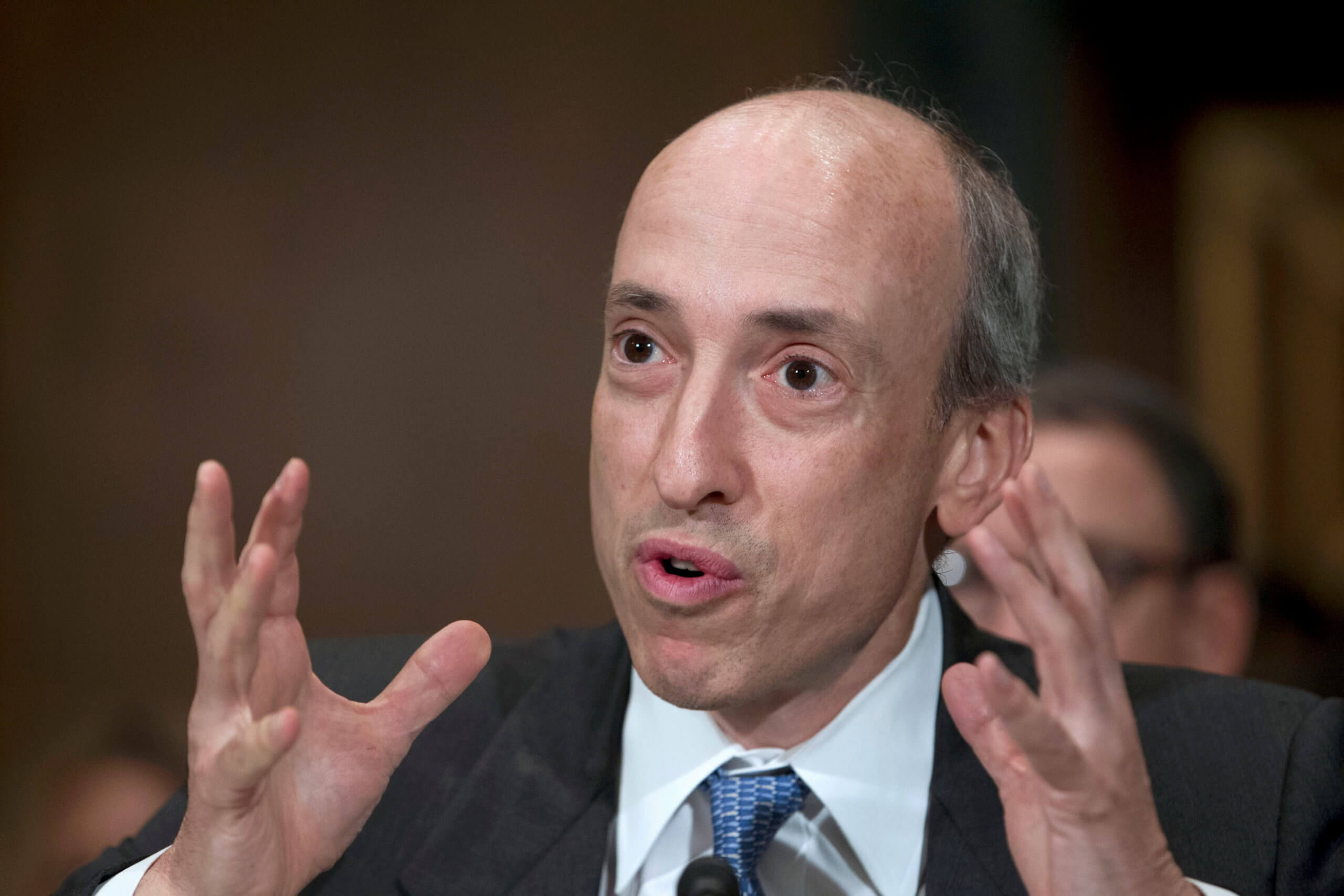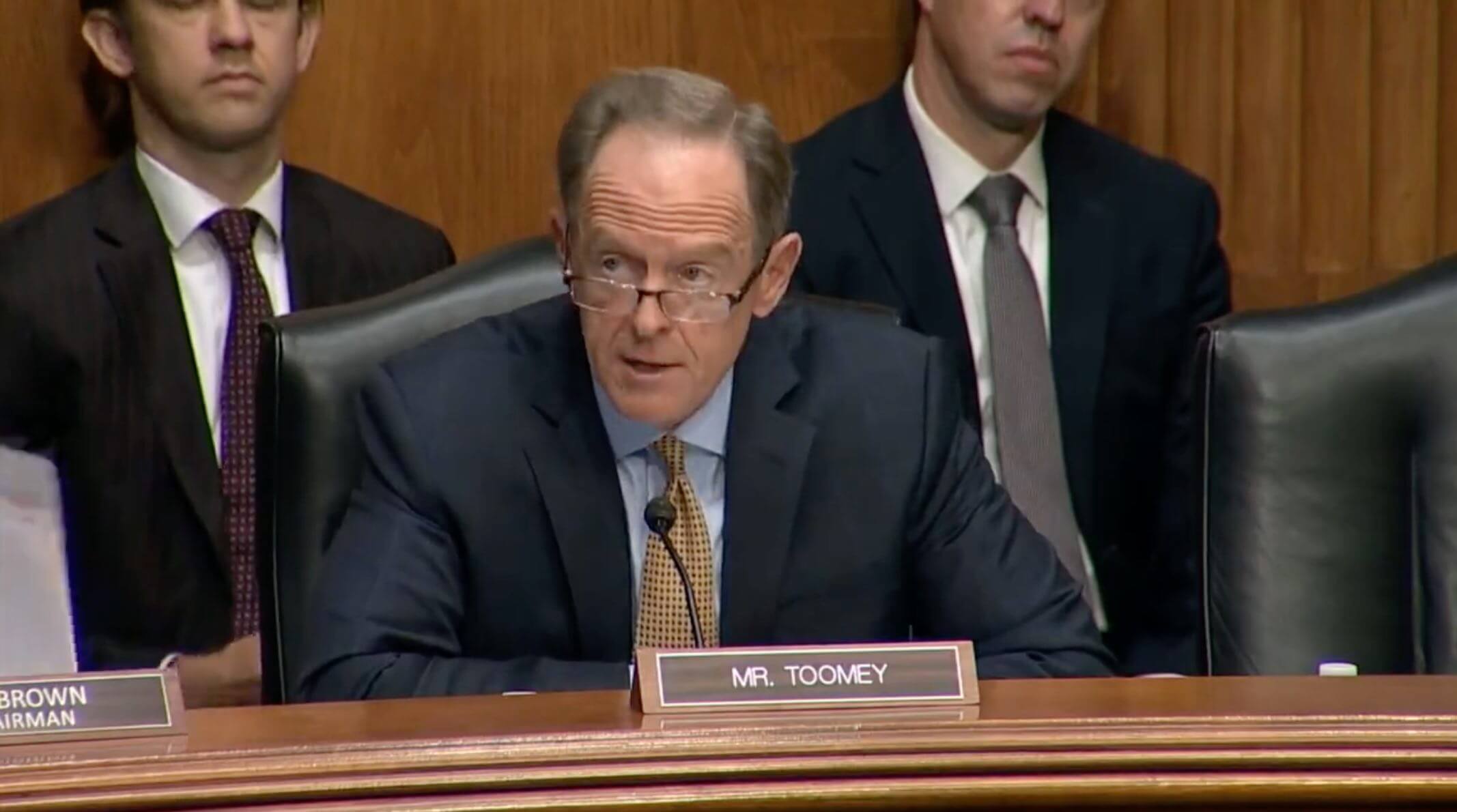The US Securities and Exchange Commission has started talking about regulating PoS cryptocurrencies. What will happen to Etherium ETH?
SEC Chairman Gary Gensler said that cryptocurrencies based on the Proof-of-Stake (PoS) algorithm could be considered securities and should then be regulated by the relevant legislation. The statement was made shortly after Etherium’s move to PoS, the most anticipated event for the crypto industry this year. We tell you more about what’s happening.

Now, according to Gensler's claim, Etherium may pass the Howey test - precedent in the form of a US Supreme Court case to determine whether a transaction qualifies as an "investment contract" and therefore is considered a security and subject to disclosure and registration under the Securities Act of 1933 and the Securities Exchange Act of 1934. According to the Howey test, an investment contract exists if there is "an investment of money in a common enterprise with a reasonable expectation of profit to be derived from the efforts of others".
Is cryptocurrency a security or not?
According to Decrypt’s sources, Gensler is confident that Proof-of-Stake-based cryptocurrencies may well meet the conditions of the Howey test. As a reminder, PoS involves the process of stacking – blocking a certain number of coins in a smart contract for profit. Can this definition be “stretched” to the Howey test?

SEC chairman Gary Gensler
On the one hand, you could try to look for some parallels between traditional finance and crypto. On the other hand, the Howey test is more than 80 years old, and that asset classification system is hardly suited to the modern realities of altcoins on PoS. In other words, the US Securities and Exchange Commission should not try to classify any crypto as a security – instead, the regulator should work on creating a radical new system for controlling digital assets, taking into account all current trends. Or, at the very least, to set clear rules for the regulation of coins and its attitude to certain tokens.
😈🤩 FOR MORE INTERESTING THINGS, SEARCH US AT YANDEX.ZEN!
Gensler’s aforementioned statement did not talk about Etherium specifically. He had previously been asked whether the most popular altcoin should be considered an “investment contract”. However, Gensler evaded the question at the time. The only thing he stated firmly is that the SEC will not consider Bitcoin a security.

SEC picks next coin to crack down on
The Coin Centre, a non-profit organisation dedicated to cryptocurrency policy, said in a blog post on Thursday that Ether’s move to PoS should not change the way it is regulated. While Gensler declined to comment on the altcoin’s prospects, its predecessors have made it clear that the SEC does not consider Etherium a security. In addition, Coin Center experts shared their views on the issue.
The main argument for classifying cryptocurrencies as securities is the continued reliance on profits derived mainly from the efforts of others. Both consensus mechanisms in the form of Proof-of-Work and Proof-of-Stake are clearly designed to avoid such dependency, creating an open competition between strangers in which any interested participant can and will fill the gap left by any other unresponsive, corrupt or censored participant.
That is, PoS- and PoW-based cryptocurrencies function as decentralised systems where there is no single entity that could even be considered a "securities issuer". In general, the concepts of security and token are inconsistent on many counts, and as we noted above, trying to use old definitions from economics is almost useless here.
In the end, the whole point of the Securities and Exchange Commission’s claim comes down to whether investors are investing in a particular coin for further profit. The SEC has previously stated that they do not consider both Bitcoin and Etherium to be securities, but now Gensler can only make a similar claim about BTC.
U.S. Senator Pat Toomey tried to find out the reasons for that the day before. In his talk at the hearing he was persistent and got an answer as to why Gensler doesn’t consider Bitcoin a security. The fact is that “there are no specific individuals behind BTC”, i.e. it is decentralised. Toomey made it clear that the operation of the same Etherium is also decentralized, and the fact that the project’s co-founders are known does not make the ETH network’s native token a security.
As a result, Toomey believes that current cryptocurrency regulations are obsolete, and the SEC should create clear rules of engagement with the niche instead of taking turns to meet with its prominent representatives.
Watch the video of Toomey and Gensler here if you can understand English. The video makes it clear that the Senator's position is clearer, and the SEC is a bit on the wrong side. If the regulator was busy creating a legal framework, it would be much easier for developers to develop their own projects, with Toomey also making that point.

Senator Toomey’s conversation with Gary Gensler
Now let’s imagine the most negative scenario – a lawsuit against the Etherium development team by the U.S. Securities and Exchange Commission. Most likely, such a case will not end in anything, as SEC representatives have been unable to prove their position in the case against Ripple for almost two years now. Recall that the regulator filed a lawsuit in December 2020 over the launch of the XRP token, which SEC officials also see as a security rather than a currency.
We think the SEC's activity in this case is rather odd. First, the agency continues to use outdated regulations which are trivially incompatible with modern asset classes. Second, they are still unable to create clear rules for this niche, which creates problems for developers. One would like to believe that this will be corrected in time.
What do you think about it? Share your opinion in our Millionaire Crypto Chat. There we discuss other important developments in the world of blockchain and decentralization.















